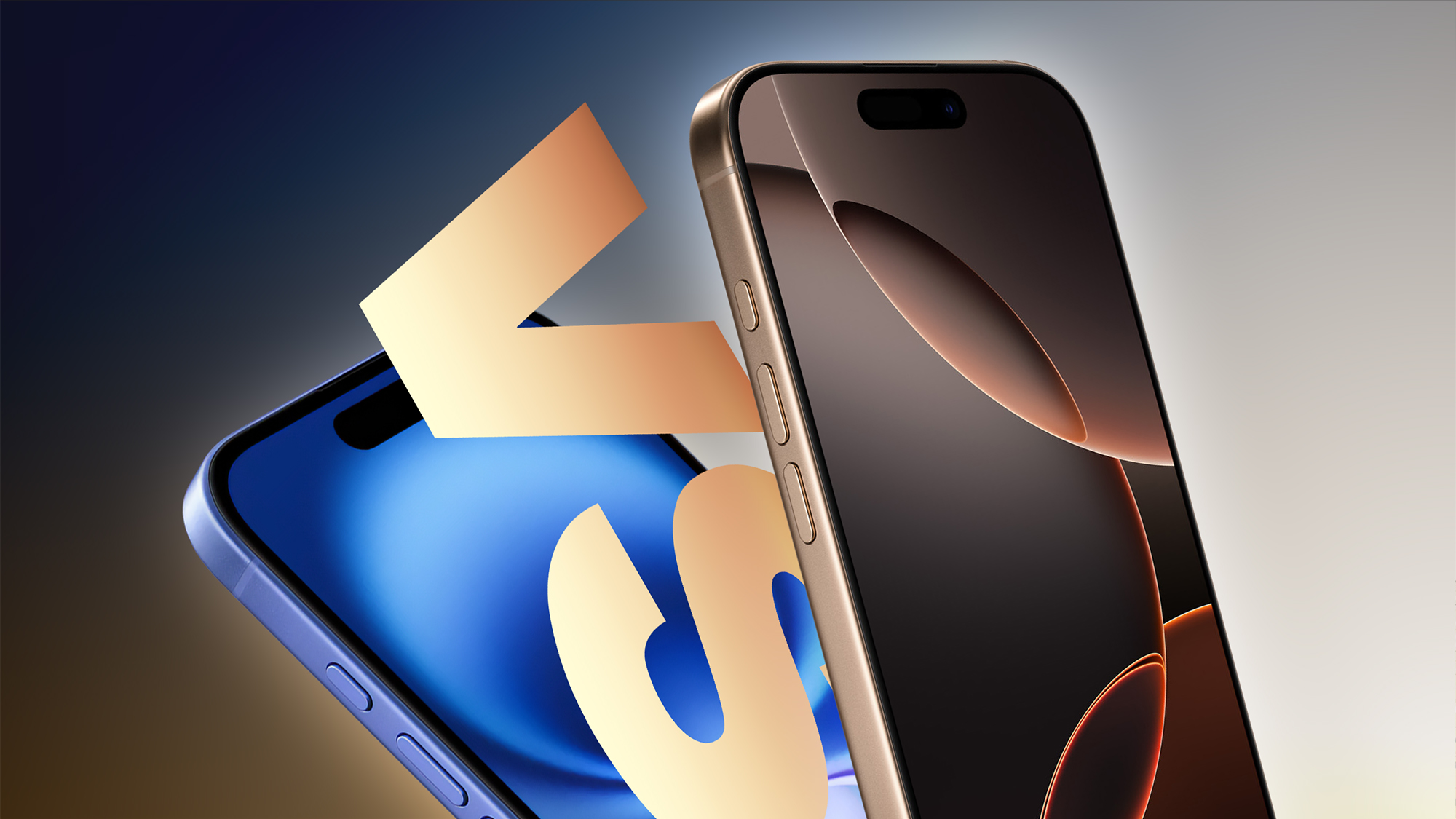
Last year, the biggest new differences between the iPhone 15 and iPhone 15 Pro were the titanium frame, A17 Pro chip, and Action button. With iPhone 16 and iPhone 16 Pro, both devices share new features like the A18 chip with support for Apple Intelligence, faster charging, stronger Ceramic Shield front glass, revamped Photographic Styles, the Camera Control, and Wi-Fi 7, but Apple's "Pro" and non-Pro iPhone models are still fairly different devices.
Our guide helps to answer the question of how to decide which of these two iPhone models is best for you, and serves as a way to clearly see what additional features and upgrades the iPhone 16 Pro brings to the table.
| iPhone 16 | iPhone 16 Pro |
|---|---|
| Anodized aluminum frame with color-infused glass | Blasted titanium frame |
| iPhone 16: 6.1-inch display iPhone 16 Plus: 6.7-inch display |
iPhone 16 Pro: 6.3-inch display iPhone 16 Pro Max: 6.9-inch display |
| Thinner borders around the display | |
| ProMotion with adaptive refresh rates up to 120Hz | |
| Always-on display | |
| More power efficient display | |
| Available in Black, White, Pink, Teal, and Ultramarine finishes | Available in Black Titanium, White Titanium, Natural Titanium, and Desert Titanium finishes |
| A18 chip | A18 Pro chip |
| "Advanced" dual-camera system | "Pro" triple camera system |
| 48-megapixel Fusion main camera with ƒ/1.6 aperture | 48-megapixel Fusion main camera with ƒ/1.78 aperture and larger sensor |
| 12-megapixel Ultra Wide camera with ƒ/2.2 aperture | 48-megapixel Ultra Wide camera with ƒ/2.2 aperture |
| Macro photography | 48-megapixel macro photography |
| Support for new JPEG-XL format | |
| Depth mapping for AR and portrait photography, allowing for more accurate background and subject separation, more realistic bokeh, and better AR experiences. | |
| 4K video recording at 24 fps, 25 fps, 30 fps, or 60 fps, with playback speed controls | 4K Dolby Vision video recording at 24 fps, 25 fps, 30 fps, 60 fps, 100 fps (Fusion) or 120 fps (Fusion) |
| 1080p Dolby Vision video recording at 25 fps, 30 fps or 60 fps | 1080p Dolby Vision video recording at 25 fps, 30 fps, 60 fps, or 120 fps (Fusion) |
| ProRes video recording up to 4K at up to 120 fps with external recording | |
| Slo-mo video support for 1080p at 120 fps or 240 fps | Slo-mo video support for 1080p up to 240 fps and 4K Dolby Vision up to 120 fps (Fusion) |
| Studio-quality four-mic array | |
| 12-megapixel Telephoto camera with ƒ/2.8 aperture | |
| 0.5x, 1x, and 2x optical zoom | 0.5x, 1x, 2x, and 5x optical zoom |
| Sensor-shift optical image stabilization | Second-generation sensor-shift optical image stabilization |
| True Tone flash | Adaptive True Tone flash |
| LiDAR scanner | |
| Night mode portraits | |
| Apple ProRAW | |
| Shoot and instantly transfer 48-megapixel ProRAW images to Mac via USB 3 | |
| Record video directly to an external drive | |
| ProRes video recording up to 4K at 30 fps (60 fps with external recording) | |
| Log video recording | |
| Academy Color Encoding System | |
| USB 2 transfer speeds (up to 480Mb/s) | USB 3 transfer speeds (up to 10Gb/s, 20x faster) |
| DisplayPort support for up to 4K HDR video output | |
| iPhone 16: Up to 22 hours of battery life iPhone 16 Plus: Up to 27 hours of battery life |
iPhone 16 Pro: Up to 27 hours of battery life iPhone 16 Pro Max: Up to 33 hours of battery life |
| 128GB, 256GB, and 512GB storage options | 128GB, 256GB, 512GB, and 1TB storage options (no 128GB on Pro Max) |
| iPhone 16: Starts at $799 iPhone 16 Plus: Starts at $899 |
iPhone 16 Pro: Starts at $999 iPhone 16 Pro Max: Starts at $1,199 |
The iPhone 16 Pro offers a large number of upgrades over the standard iPhone 16. With just $200 difference to obtain a display with ProMotion and always-on functionality, a telephoto camera, and longer battery life, many customers will be able to justify getting the iPhone 16 Pro over the iPhone 16. Other differences, such as a titanium frame, slightly larger display sizes, the A18 Pro chip, and a 1TB storage option are notable, but most significant are perhaps the devices' fundamentally different rear camera setups. The iPhone 16 Pro unlocks many additional camera features, such as ProRAW and 48-megapixel macro photography, and benefits from an entire additional camera in the form of the 5x telephoto for a additional optical focal length option. Due to the scale and breadth of the iPhone 16 Pro's improvements and features, many customers will be happy to opt for the high-end model.
The standard iPhone 16 still offers many of the iPhone 16 Pro's most compelling capabilities, such as Apple Intelligence support, the Camera Control, USB-C, Dynamic Island, and a 48-megapixel Fusion camera, at a lower price point. With a generous roster of advanced features, most customers will be happy with the iPhone 16 or iPhone 16 Plus, especially those who want a lighter device, do not care for the "Pro" rear camera setup or features like ProMotion and the always-on display, or cannot justify the $200 to upgrade to the high-end model. The iPhone 16 is a very well designed and balanced device, especially for average customers and those coming from a much older model.
Related Roundups: iPhone 16, iPhone 16 Pro
Buyer's Guide: iPhone 16 (Buy Now), iPhone 16 Pro (Buy Now)
This article, "iPhone 16 vs. iPhone 16 Pro Buyer's Guide: All Differences Compared" first appeared on MacRumors.com
Discuss this article in our forums
0 comments:
Post a Comment